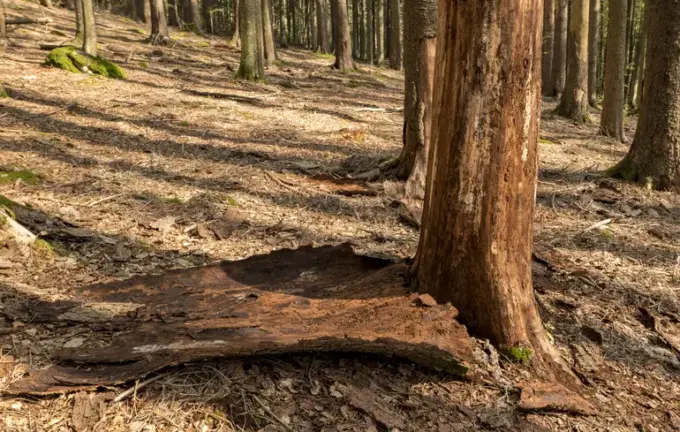Ukrainian forests under threat: the ecological impact of war on ecosystems and biodiversity

The ongoing war in Ukraine leaves a destructive imprint not only on human lives but also on the natural environment, particularly in forested areas.
The scars of military actions—explosions, shelling, and chemical contamination of soil and vegetation—cause extensive ecological damage.
Forests, which are vital components of the country’s biodiversity, are directly impacted through tree injuries and undergrowth destruction, leading to a decline in wildlife populations and microflora.
The natural ‘sanitizers’—insect species that clean the ecosystem from dead organic matter and facilitate nutrient recycling—face increased threats due to the proliferation of harmful insect species and disrupted ecological chains.
Damaged trees become more vulnerable to xylophagous insects, such as bark beetles, which accelerate tree mortality under weakened conditions.
Furthermore, soil contamination and damage to forest boundaries in war zones heighten the risk of forest fires and ecological disasters.
Ecologists have already observed a doubling of forest fires linked to remnants of munitions, toxic chemicals, and environmental pollution resulting from hostilities.
These events threaten not only plant and animal species but also the structural integrity of the soil, disrupting water and air regimes and disturbing the biological cycles of forest inhabitants.
War conditions activate specific insect species, particularly phytophages, that multiply rapidly and further exacerbate tree destruction.
Early signs of such activity include massive reproduction events on weakened trees unable to defend themselves.
This process leads to the large-scale destruction of forest territories, the loss of pollinators vital for plant reproduction, and other ecosystem-critical species.
The conflict hampers the natural regeneration of forests, potentially causing long-term ecological and biodiversity losses across Ukraine.

